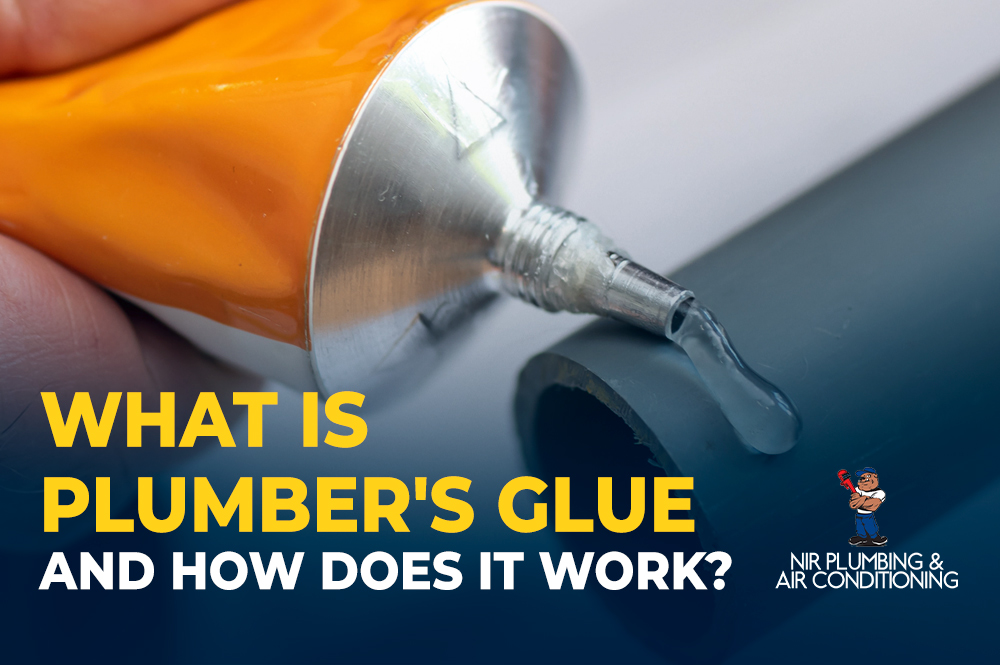Overview: Have you heard about plumber’s glue? It can be a great tool when it comes to helping you with plumbing projects. If you’d like to unlock the secrets of plumber’s glue and its role in plumbing, you’re at the right place. Stick with us to learn about plumber’s glue in this blog post!
Do you ever really think about the necessity of secure and watertight plumbing connections in your house? Plumbing is something we never pay much attention to until we suddenly have to, but it’s crucial to our everyday comfort. In the plumbing realm, precision is everything, which means it’s so important to have the right tools and materials.
But it’s possible that you’ve barely even heard of one of the most useful and flexible tools in the plumbing toolkit. We’re talking about plumber’s glue — an unsung hero.
In this blog post, we’ll explore the role of plumber’s glue in the world of plumbing. From understanding its composition and adhesive properties to uncovering its applications in various plumbing systems, we’ll delve into the inner workings of this powerful adhesive.
Understanding Plumber’s Glue
So what is plumber’s glue? We’re glad you asked!
Plumber’s glue is a specialized adhesive designed specifically for bonding plastic pipes and fittings made of PVC (polyvinyl chloride), CPVC (chlorinated polyvinyl chloride), and ABS (acrylonitrile butadiene styrene).
That’s a lot of letters and long words, but all you need to know is: These materials are all commonly used in residential and commercial plumbing systems due to their durability, cost-effectiveness, and resistance to corrosion and chemicals. Chances are you have one of these materials in your own plumbing system.
>> Related Reading: Plumber’s Glue: The Secret to a Watertight Seal
Composition and Varieties
The main component of plumber’s glue is a solvent called tetrahydrofuran (THF), which acts as a carrier for other ingredients. The glue also contains PVC resin, stabilizers, plasticizers, and other additives that enhance its performance. There are different variations of plumber’s glue available, such as regular, medium-bodied, and heavy-duty, which are designed for specific applications and pipe sizes.
Importance and Benefits of Using Plumber’s Glue
Plumber’s glue is a critical component in plumbing projects for several reasons:
Leak Prevention: The strong bonds created by plumber’s glue provide a watertight and airtight seal, minimizing the risk of leaks and ensuring the integrity of the plumbing system.
Time and Cost Efficiency: You’ve heard it before: Time is money. This solvent welding process facilitated by plumber’s glue happens relatively quickly, allowing plumbers to complete installations and repairs efficiently. This efficiency translates into saved time and reduced labor costs.
Durability: With plumber’s glue applied, the resulting joints are highly resistant to pressure, temperature fluctuations, and chemical exposure, ensuring long-lasting performance.
Versatility: Plumber’s glue can be used with various plastic pipe materials and fittings, including the aforementioned PVC, CPVC, and ABS. This versatility makes it a go-to adhesive for a wide range of plumbing applications.
Ease of Use: Plumber’s glue is relatively simple to use, making it accessible to both professional plumbers and DIY enthusiasts. With proper surface preparation and following the instructions, even those with limited plumbing experience can achieve reliable and secure joints.
Compatibility: Plumber’s glue is compatible with other plumbing materials, such as valves, connectors, and adapters, allowing for seamless integration and connectivity within a plumbing system.
Cost-Effective: Plumber’s glue is an affordable solution for joining plastic pipes and fittings. It eliminates the need for expensive and time-consuming alternatives like soldering or threading, reducing overall project costs.
Non-Threaded Connections: Unlike traditional pipe fittings that require threading, plumber’s glue enables non-threaded connections in many applications. This simplifies the installation process and reduces the chances of leaks occurring at threaded joints.
Safety Considerations While Using Plumber’s Glue
While plumber’s glue is an effective and widely used adhesive, it’s essential to follow safety precautions during its application:
Ventilation: The fumes emitted by plumber’s glue can be strong and potentially harmful if inhaled. If you try to use it yourself, always ensure adequate ventilation in the working area, especially when working in enclosed spaces!
Skin and Eye Protection: The adhesive can cause skin and eye irritation. Wear protective gloves and safety glasses when handling plumber’s glue to minimize the risk of contact.
Follow Manufacturer’s Instructions: Different brands of plumber’s glue may have specific guidelines and safety recommendations. Always read and follow the instructions provided by the manufacturer to ensure proper usage.
In Summary
Plumber’s glue, also known as PVC glue or solvent cement, is an indispensable tool for plumbers when it comes to joining plastic pipes and fittings. Its ability to create strong, durable, and leak-free connections through solvent welding makes it a preferred choice in the plumbing industry.
By understanding how plumber’s glue works and adhering to safety guidelines, both professionals and DIY enthusiasts can achieve reliable and long-lasting plumbing installations and repairs.
If you need some plumbing repairs done, you’ve come to the right place. At NIR Plumbing, we know our way around a plumbing system and we have all the best tools at our disposal. Contact us today!


